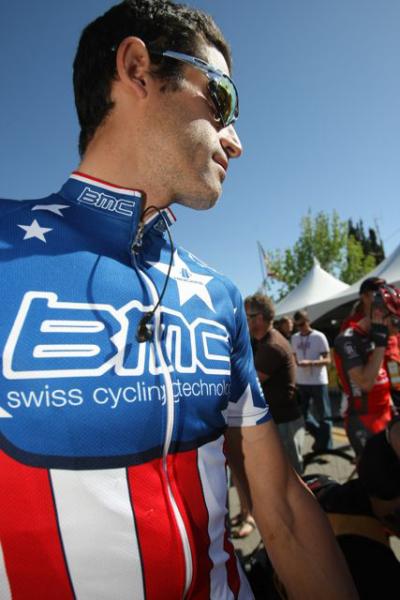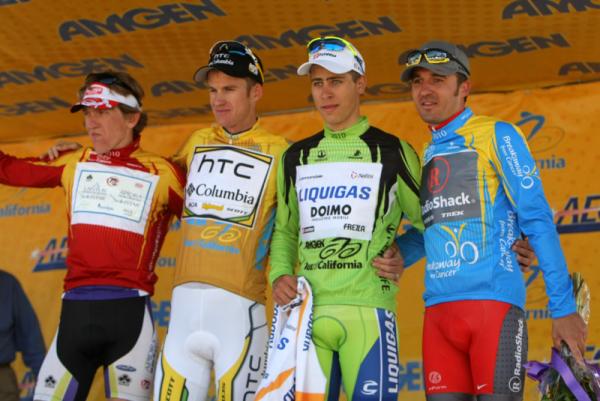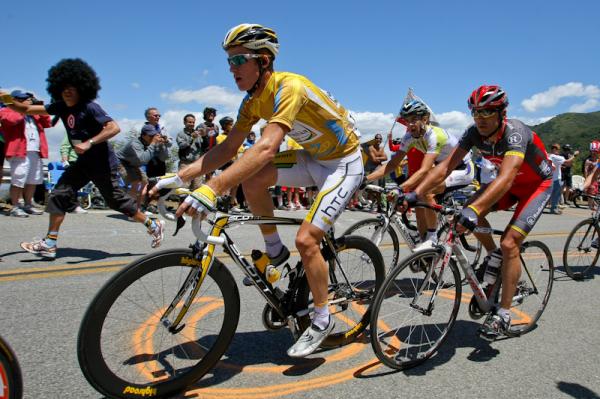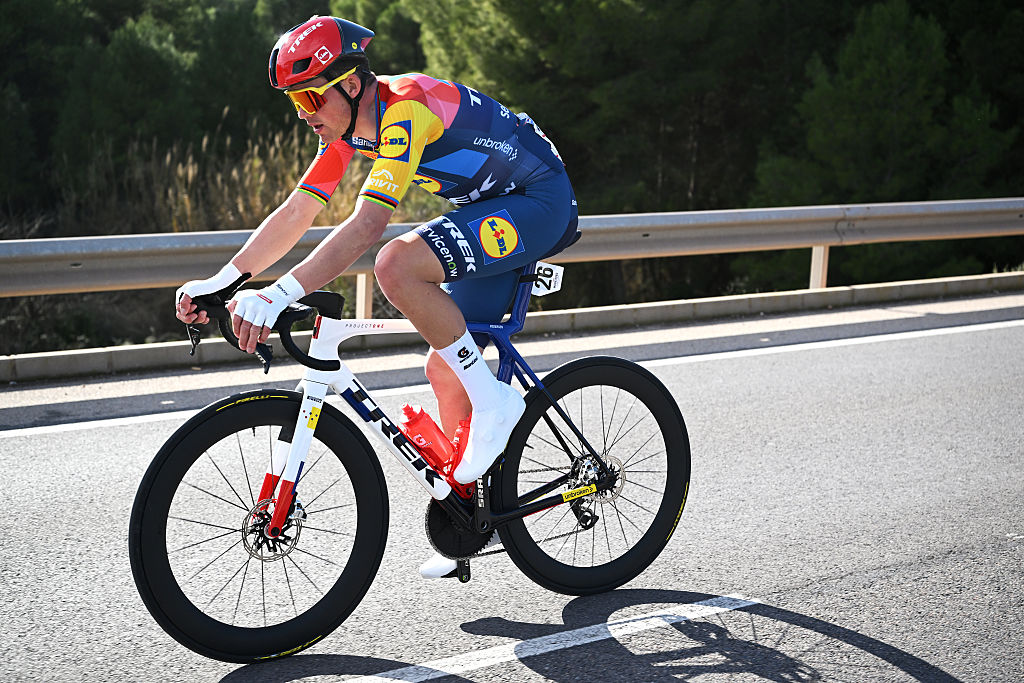ProTour California event a Continental catch-22
US squads fear the implications of increased race status
The latest race content, interviews, features, reviews and expert buying guides, direct to your inbox!
You are now subscribed
Your newsletter sign-up was successful



The Amgen Tour of California has made a rapid progression toward being one of the most important races on the international calendar in its brief five-year history, and has aims at stepping up a level to the top level of the sport. But the prospect of the race entering into the ProTour has some of the US-based Continental teams concerned.
The International Cycling Union (UCI) has three levels of professional teams: ProTour being the highest, Professional Continental and Continental as the lowest. It also has ranks for races - World Calendar, ProTour, 1 and 2HC, each of which has rules as to the level of team that is allowed to compete. The Tour of California is currently an HC stage race, which means all three levels of team are allowed.
AEG president and Tour of California director Andrew Messick told Cyclingnews that he is currently in discussions with the UCI on the possibility of the race moving to the ProTour in 2011 or 2012.
Should the Tour of California go up in rank, it would put teams like Jonas Carney's Kelly Benefit Strategies squads in the difficult situation of having to choose between continuing to race the domestic circuit and competing in the Tour of California which is the highest profile race in the country.
A question of rank
Current rules preclude Continental teams from being allowed in races at the ProTour level. Only ProTour and Professional Continental teams can be invited. However, Professional Continental squads are not allowed to race as a team in non-UCI sanctioned national events.
"It's definitely an interesting situation," said Carney. "For the domestic teams Tour of California is a big deal. There's so much press, so many fans and television coverage. It's really our one big chance to be on the big stage with the big teams. It's really important that we're here for our sponsors and for the future of our teams.
The latest race content, interviews, features, reviews and expert buying guides, direct to your inbox!
"If you're a domestic team you'd have to turn Pro Continental to race here, but if you turn Pro Continental you wouldn't be able to do Redlands, Tour of the Gila, Nature Valley, Fitchburg and all the other races that make up 90 percent of our schedule. If we could only do UCI races, there would only be about five events we could do in all of America."
In past years the rule keeping Pro Continental teams out of national races was not strictly enforced, but last year when Lance Armstrong wanted to bring his Astana team to race the Tour of the Gila, the situation erupted, affecting mainly the BMC Racing Team which had Professional Continental team but still a large focus on the US national calendar.
Teams were forced to ride under a different team name for non-UCI pro events and limit their rosters to only three riders. Carney does not see this as an acceptible solution for his team should Tour of California turn ProTour.
Carney said that if Tour of California does make the leap, then the UCI will need to make changes either to the rules governing teams or ease the requirements for races to become UCI sanctioned in order for the domestic teams to have a full calendar and still include Tour of California.
"There has to be a solution - maybe another level for teams who want to do Tour of California and race the domestic events as well. Right now it's like we're in no-man's land between the break and the peloton. It's a strange situation with the US teams and I wish the UCI would step in and resolve the problem. I think a lot of teams like ours would like to turn Pro Continental but it's not as simple as that."
Unitedhealthcare's director Mike Tamayo echoed Carney's comments, calling the issue "a serious problem". "We will gladly become Pro Continental in order to do the Tour of California. Our sponsor is prepared to support that, but the national races are very important to a sponsor like Unitedhealthcare who's market is in the US."
Home grown solution - at a cost
If the top national races on the calendar could become UCI-sanctioned, that would go a long way toward solving the teams' quandry, but it also adds a lot of burden onto the races to meet the requirements for that level. Carney pointed to one rule in particular which would impact almost every US race.
"The UCI has a lot of rules about criteriums - you can't have a stage race with a criterium in it and be UCI, which pretty much eliminates every stage race in America. If they were to be more flexible on the rules and let us keep the criterium and still be a UCI stage race, that might encourage more races to become UCI. That could help.
Messick said the concerns expressed by the domestic teams are on his radar. "We want to continue to grow the race, but at the same time the situation of the Continental teams is definitely an important consideration. Giving the Continental teams the opportunity to compete against the best in the world makes the race better."
The issue is not isolated to just Tour of California. When the Tour Down Under joined the ProTour organisers negotiated with the UCI to allow the national team into the race. Two Canadian ProTour races which were added to the calendar this year, putting the Spidertech squad, Canada's only UCI Continental team, in the position of having to push for rule changes to be allowed to compete on its home soil.
It's a situation that rarely presents itself in Europe, where there are numerous ProTour and Professional Continental teams and a full calendar of races at all levels.
"I hope the UCI will take a good look at it logically and realise the racing scene in America is nothing like the racing scene in Europe and we need to have a separate set of rules for our pro teams," Carney said. "The system they have in place is set up for Europe. It's not set up for America. I don't think it's good for the sport to put the teams in the position where they can't get into the biggest race unless we give up doing 90 percent of the races we usually do."

Laura Weislo has been with Cyclingnews since 2006 after making a switch from a career in science. As Managing Editor, she coordinates coverage for North American events and global news. As former elite-level road racer who dabbled in cyclo-cross and track, Laura has a passion for all three disciplines. When not working she likes to go camping and explore lesser traveled roads, paths and gravel tracks. Laura specialises in covering doping, anti-doping, UCI governance and performing data analysis.
